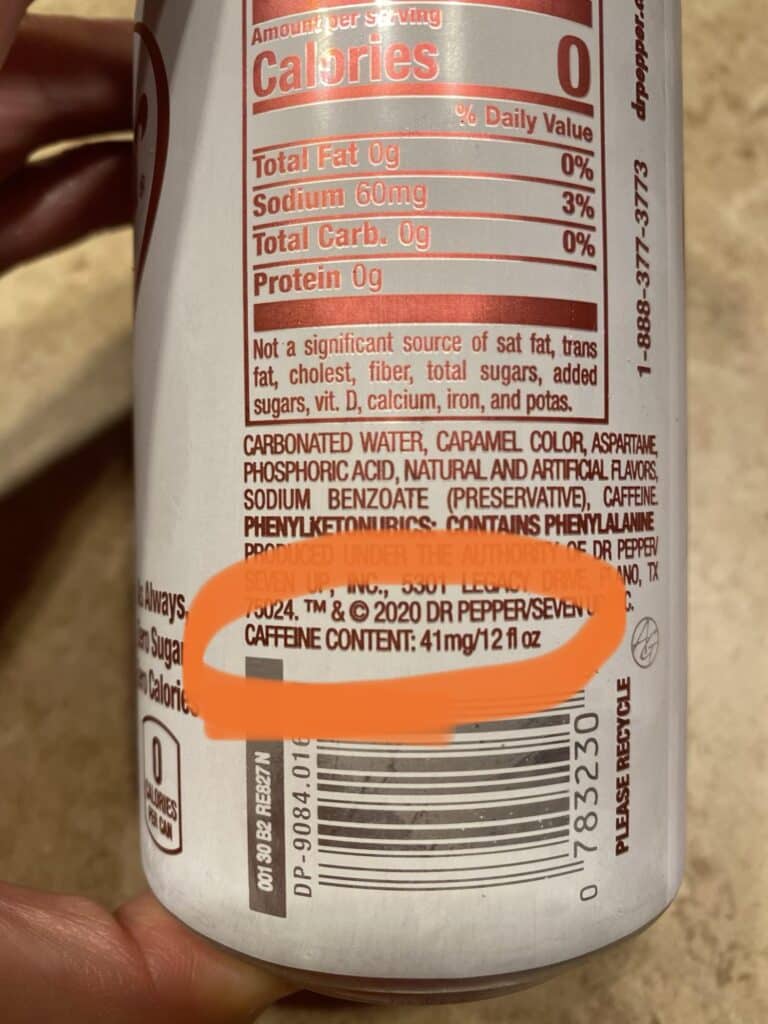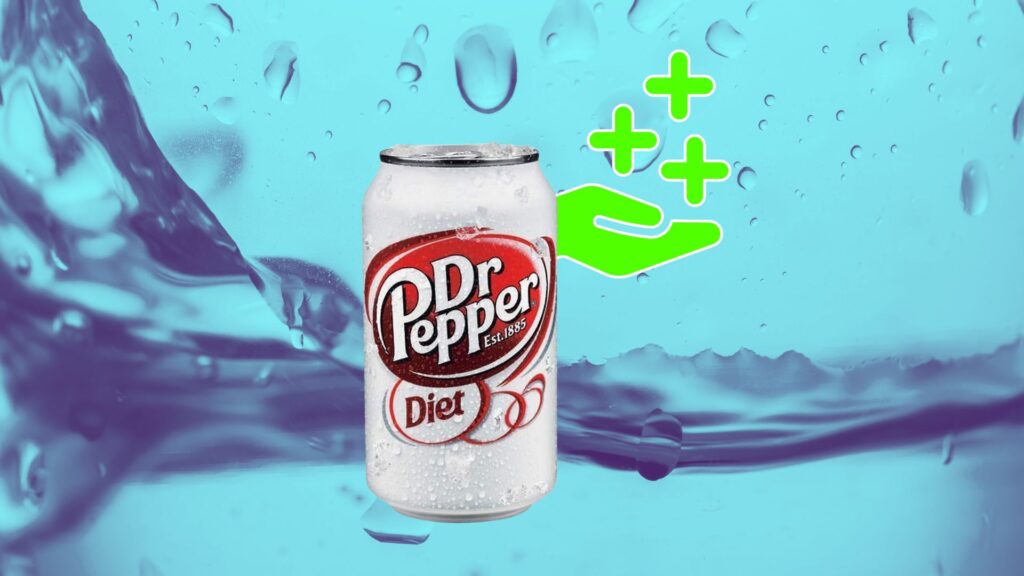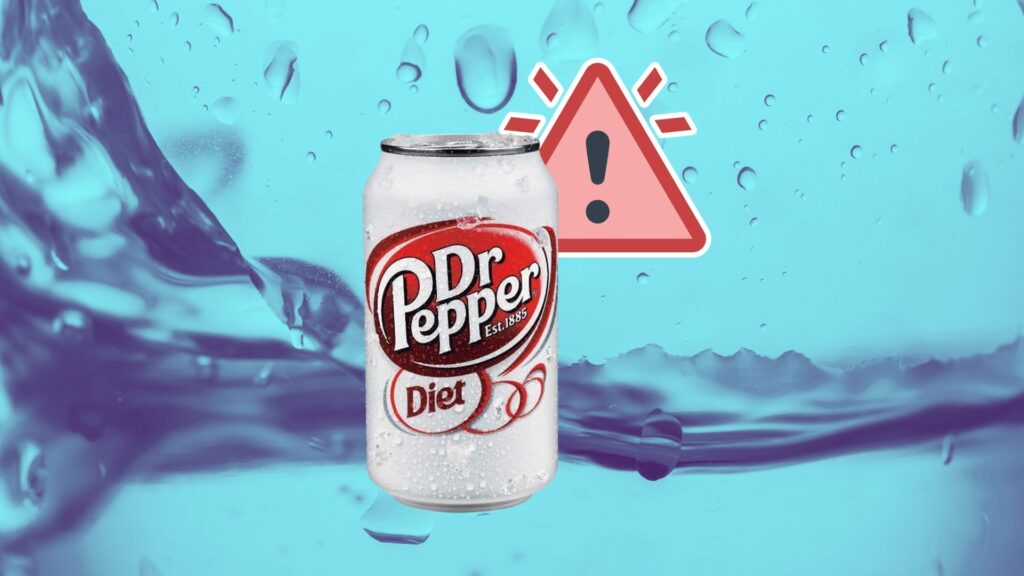Have you ever wondered about the health implications of consuming Diet Dr Pepper?
This popular soft drink contains caffeine, a stimulant that can affect your body in various ways.
While many enjoy the energizing effects of caffeine, it’s crucial to understand both the potential benefits and risks associated with its consumption, especially in the context of Diet Dr. Pepper.
In this article, we’ll explore Diet Dr Pepper’s caffeine content and delve into the scientific research surrounding its health impacts.
By the end, you’ll understand how Diet Dr Pepper’s caffeine content may influence your well-being.
Caffeine Content in Diet Dr Pepper

Diet Dr Pepper has around 44.1 mg of caffeine in each 12 oz can. While this is lower than what you’d find in a regular Dr Pepper, it still offers a subtle energy boost.
Role of Caffeine in Soft Drinks
1. Natural Stimulant Properties of Caffeine
Caffeine, a natural stimulant, is commonly present in coffee, tea, and various plants. It works by blocking adenosine receptors in the brain, which helps reduce fatigue and improve alertness.
The benefits of caffeine include better focus, a positive mood, and a short-term energy boost. Many people consume it to stay awake and alert, especially during tasks requiring prolonged attention.
2. Common Reasons for Adding Caffeine to Soft Drinks
- Energy Boost: Soft drink makers add caffeine to give consumers a quick and easy way to increase their energy levels.
- Flavor Enhancement: Caffeine adds a slightly bitter taste that balances the sweetness of soft drinks, creating a well-rounded flavor.
- Market Demand: Many consumers prefer caffeinated drinks for their energy and alertness benefits, prompting manufacturers to include caffeine.
- Competitive Edge: Caffeinated soft drinks often rival coffee and energy drinks, appealing to those who prefer a refreshing, cold beverage over hot drinks.
3. Comparison of Caffeine Content in Diet Dr Pepper with Other Beverages
| Beverage | Caffeine Content (mg per 12 oz or equivalent) |
|---|---|
| Diet Dr Pepper | 44.1 |
| Regular Dr Pepper | 42.6 |
| Diet Coke | 46.3 |
| Pepsi | 38.9 |
| Mountain Dew | 54.8 |
| Coffee (average) | 95.0 |
| Energy Drinks (e.g., Red Bull) | 80.0 |
Health Benefits of Caffeine in Diet Dr Pepper

1. Specific Benefits of Caffeine
Diet Dr Pepper offers a tasty and practical way to consume caffeine, particularly for those who favor soft drinks over coffee or tea.
The 44.1 mg of caffeine per 12 oz can provide a subtle energy boost without the high-calorie content of sugary beverages, making it a good choice for people looking to manage their weight while still enjoying the stimulating effects of caffeine.
2. Moderate Caffeine Consumption and Its Positive Effects
- Increased Alertness and Concentration: Caffeine helps improve focus and mental clarity, making it easier to carry out tasks that need sustained attention. It is especially helpful during low energy or when alertness is essential, such as during late-night work or study sessions.
- Enhanced Mood: Caffeine stimulates the release of neurotransmitters like dopamine and serotonin, which can improve mood and provide a sense of well-being. This mood-boosting effect can help reduce fatigue and promote a positive outlook.
3. General Benefits of Moderate Caffeine Consumption
- Physical Performance: Caffeine has been shown to improve physical performance by increasing adrenaline levels, which can boost endurance and strength. It can be beneficial for those engaging in exercise or physical activities.
- Cognitive Function: Regular, moderate caffeine intake is linked with better cognitive function and may help protect against cognitive decline as people age.
- Reduced Risk of Certain Diseases: Some studies suggest that moderate caffeine consumption may be associated with a lower risk of developing conditions like Parkinson’s disease and certain types of cancer.
Health Risks of Caffeine in Diet Dr Pepper

1. Negative Effects of Excessive Caffeine Consumption
- Insomnia: High caffeine intake can disrupt sleep patterns, making falling or staying asleep hard. This can lead to chronic sleep deprivation, affecting overall health and well-being.
- Jitteriness: Too much caffeine can cause nervousness, restlessness, and trembling, which can be uncomfortable and disruptive.
- Increased Heart Rate: Large amounts of caffeine can raise heart rate and blood pressure, posing risks for people with heart conditions.
- Anxiety: Consuming too much caffeine can worsen anxiety symptoms, leading to increased nervousness and stress.
2. Risks Specific to Sensitive Individuals and Those with Health Conditions
- Caffeine Sensitivity: Some people are more sensitive to caffeine and may experience negative effects even with small amounts. Symptoms can include severe jitters, palpitations, and digestive issues.
- Heart Conditions: People with cardiovascular issues should monitor their caffeine intake, as it can cause spikes in heart rate and blood pressure.
- Pregnancy: Pregnant women are advised to limit caffeine intake due to potential risks to fetal development and pregnancy complications.
- Mental Health Conditions: People with anxiety disorders or other mental health conditions may find that caffeine worsens their symptoms.
3. Potential Long-Term Health Effects
- Bone Health: High caffeine consumption has been linked to decreased bone density, increasing the risk of fractures and osteoporosis over time.
- Addiction and Dependence: Regular, high-dose caffeine use can lead to dependence, with withdrawal symptoms such as headaches, fatigue, and irritability.
- Gastrointestinal Issues: Long-term excessive caffeine intake can cause digestive problems, including acid reflux and gastritis.
- Impact on Nutrient Absorption: Caffeine can interfere with the absorption of certain nutrients like calcium and iron, potentially leading to deficiencies if consumed in large quantities.
Balancing Caffeine Intake
1. Importance of Moderation
- Overall Health Benefits: Moderation in caffeine consumption helps maximize its benefits while minimizing negative effects. It ensures that caffeine provides energy and alertness without leading to health problems.
- Preventing Dependence: Moderate consumption reduces the risk of developing a dependence on caffeine. It helps prevent withdrawal symptoms like headaches and fatigue.
2. Daily Recommended Limits for Caffeine Consumption
- General Guidelines: Health experts recommend no more than 400 mg of caffeine daily for most adults. This is roughly equivalent to four 8-ounce cups of brewed coffee or about nine 12-ounce cans of Diet Dr Pepper.
- Special Populations: Pregnant women should limit caffeine intake to 200 mg daily. Individuals with certain health conditions may need to consume even less.
3. Awareness of Individual Tolerance Levels
- Listen to Your Body: Learn how your body responds to caffeine. Symptoms like jitters, insomnia, or increased heart rate indicate that you may need to reduce your intake.
- Personal Limits: Understand that individual tolerance varies widely. What works for one person might be too much or too little for another, so adjust your consumption based on your experience.
- Consult Healthcare Providers: If you have health conditions or are unsure about safe caffeine levels, consult a healthcare provider. They can provide personalized advice based on your health status and lifestyle.
Conclusion
Understanding the caffeine content in Diet Dr Pepper and its potential health effects is crucial for making informed choices about your beverage consumption.
While moderate caffeine intake can provide benefits like increased alertness and improved mood, excessive consumption can lead to negative consequences such as sleep disruption, anxiety, and long-term health risks.
By being mindful of your tolerance and the recommended daily limits, you can enjoy the taste and energy boost of Diet Dr Pepper without compromising your well-being.
Remember, moderation is key, and listening to your body’s response to caffeine is essential for striking the right balance.
So, the next time you reach for a can of Diet Dr Pepper, consider how it fits into your overall caffeine intake and make adjustments as needed to prioritize your health and happiness.




